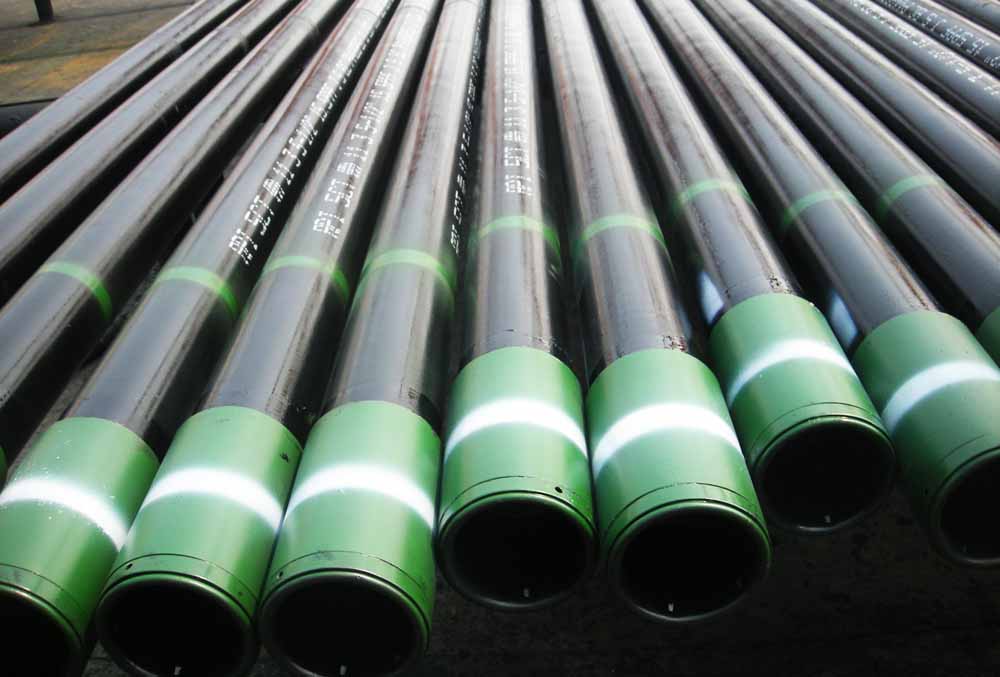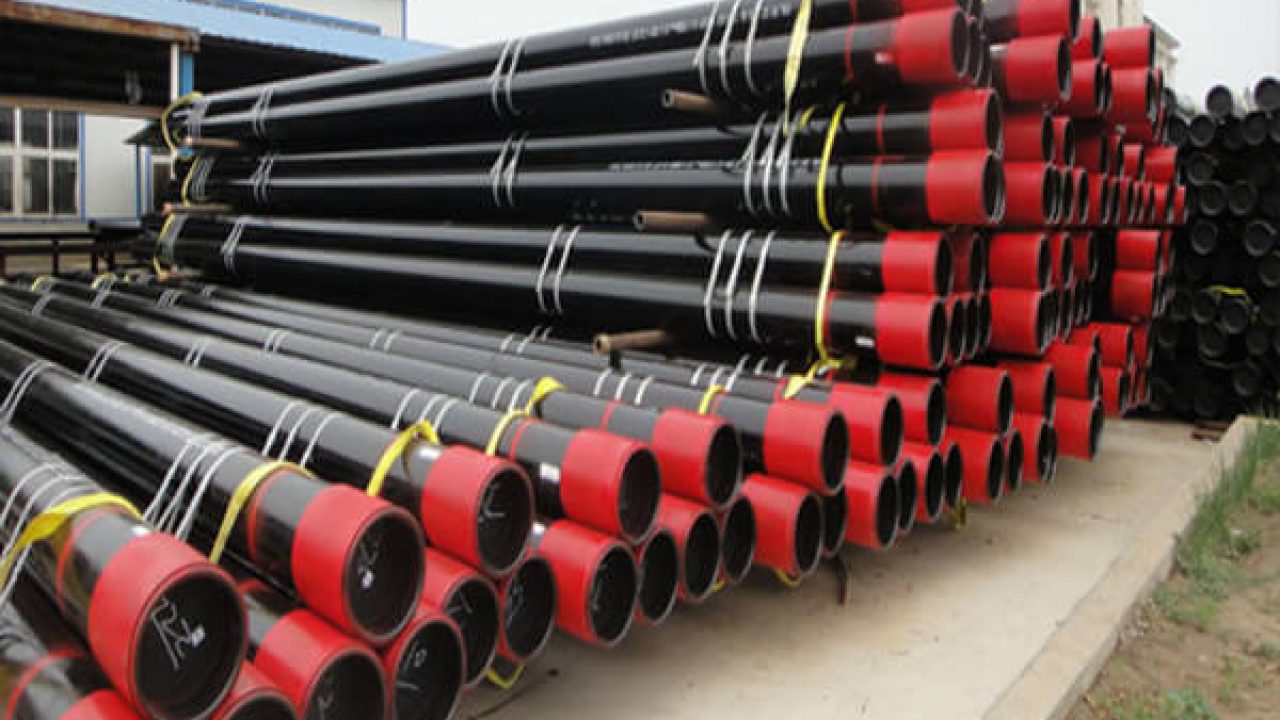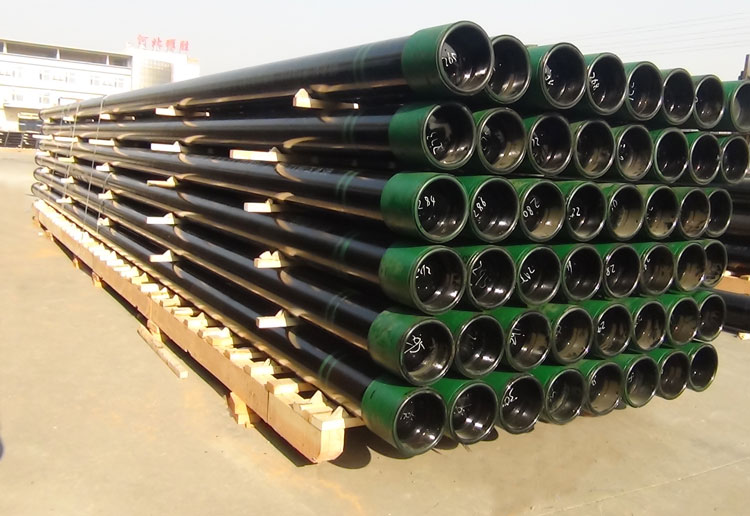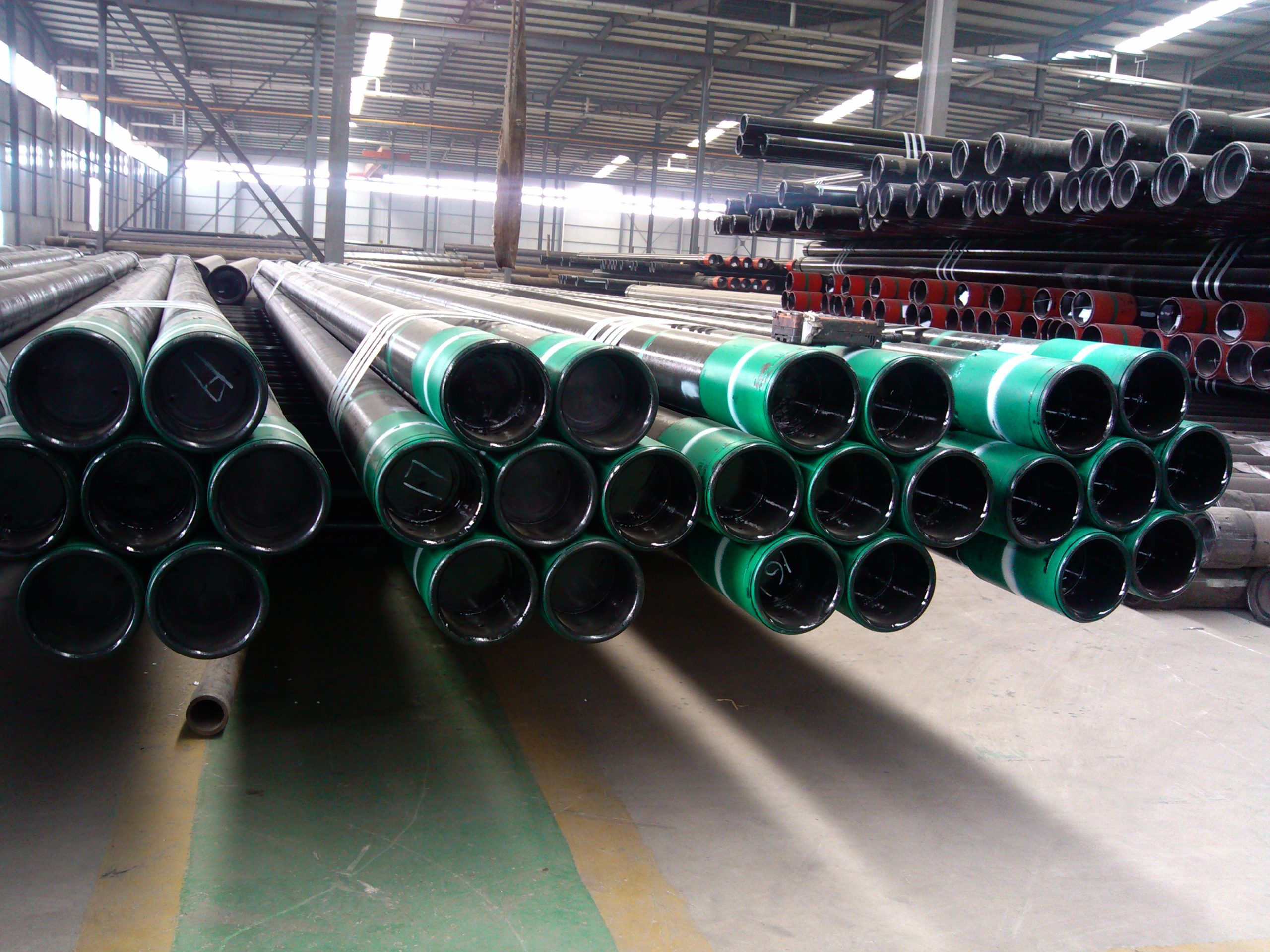ความแตกต่างระหว่างท่อปลอกน้ำมัน N80 และ L80

Differences Between API 5CT N80 and L80 Oil Casing Pipes
การแนะนำ
API 5CT is a specification for casing and tubing in the oil and gas industry, detailing the requirements for various grades of steel pipes. N80 and L80 are two commonly used grades within this specification, each with distinct properties and applications. Understanding the differences between these two grades is crucial for selecting the appropriate pipe for specific drilling and production conditions.
องค์ประกอบทางเคมี
N80
N80 casing pipes are made from carbon steel with a moderate level of alloying elements to provide a balance of strength and toughness. องค์ประกอบทางเคมีโดยทั่วไปประกอบด้วย:
| องค์ประกอบ | องค์ประกอบ (%) |
|---|---|
| คาร์บอน (ค) | 0.28-0.40 |
| แมงกานีส (มน) | 1.25-1.60 |
| ฟอสฟอรัส (ป) | 0.030 สูงสุด |
| กำมะถัน (ส) | 0.030 สูงสุด |
| ซิลิคอน (และ) | 0.20-0.35 |
L80
L80 casing pipes are also made from carbon steel, but they generally contain higher levels of alloying elements to enhance their mechanical properties and corrosion resistance. องค์ประกอบทางเคมีโดยทั่วไปประกอบด้วย:
| องค์ประกอบ | องค์ประกอบ (%) |
|---|---|
| คาร์บอน (ค) | 0.25-0.48 |
| แมงกานีส (มน) | 0.45-1.90 |
| ฟอสฟอรัส (ป) | 0.030 สูงสุด |
| กำมะถัน (ส) | 0.030 สูงสุด |
| โครเมียม (Cr) | 0.25-1.25 |
| นิกเกิล (ใน) | 0.25 สูงสุด |
| ทองแดง (ลูกบาศ์ก) | 0.25 สูงสุด |
| ซิลิคอน (และ) | 0.20-0.35 |
คุณสมบัติทางกล
N80
The mechanical properties of N80 casing pipes are designed to ensure durability and reliability under moderate operational conditions. คุณสมบัติทางกลทั่วไปได้แก่:
- ความต้านแรงดึง: 689-896 MPa (100-130 ksi)
- ความแข็งแรงของผลผลิต: ขั้นต่ำ 552 MPa (80 ksi)
- การยืดตัว: ขั้นต่ำ 15% ใน 2 นิ้ว
L80
L80 casing pipes have enhanced mechanical properties, making them suitable for more demanding applications, including sour service environments. คุณสมบัติทางกลทั่วไปได้แก่:
- ความต้านแรงดึง: 655-885 MPa (95-128 ksi)
- ความแข็งแรงของผลผลิต: ขั้นต่ำ 552 MPa (80 ksi)
- การยืดตัว: ขั้นต่ำ 15% ใน 2 นิ้ว
- ความแข็ง: Maximum 23 HRC for L80-1 and 25 HRC for L80-9Cr and L80-13Cr
การรักษาความร้อน
N80
N80 casing pipes generally undergo a normalizing heat treatment process to refine the grain structure and improve toughness and strength. The two common heat treatment processes for N80 are:
- N80-1: Normalized
- N80Q: Quenched and tempered
L80
L80 casing pipes are typically quenched and tempered to achieve the desired mechanical properties and to enhance their resistance to sulfide stress cracking (สสส) in sour service environments. There are also different types of L80 pipes based on their heat treatment and alloying elements:
- L80-1: Quenched and tempered
- L80-9Cr: Quenched and tempered with 9% โครเมียม
- L80-13Cr: Quenched and tempered with 13% โครเมียม
การใช้งาน
N80
N80 casing pipes are used in various drilling and production operations where moderate strength and toughness are required. They are suitable for:
- Standard oil and gas wells
- Moderate depth wells
- Wells without significant sour gas presence
L80
L80 casing pipes are designed for more demanding applications, particularly where resistance to corrosion and sulfide stress cracking is crucial. They are suitable for:
- Sour service environments
- Deeper wells with higher pressures
- Wells with significant hydrogen sulfide (ฮ₂ส) presence
- High-temperature and high-pressure (HTHP) wells
ค่าใช้จ่าย
N80
N80 casing pipes are generally less expensive than L80 due to their lower alloy content and less stringent heat treatment processes. They are a cost-effective choice for standard drilling and production operations.
L80
L80 casing pipes are more expensive due to their higher alloy content and more complex heat treatment processes. The additional cost is justified by their enhanced mechanical properties and corrosion resistance, making them suitable for more challenging drilling environments.
สรุป
| คุณสมบัติ | N80 | L80 |
|---|---|---|
| องค์ประกอบทางเคมี | Moderate alloy content | Higher alloy content, including Chromium |
| คุณสมบัติทางกล | ความต้านแรงดึง: 689-896 MPa<br>ความแข็งแรงของผลผลิต: ≥552 MPa<br>การยืดตัว: ≥15% | ความต้านแรงดึง: 655-885 MPa<br>ความแข็งแรงของผลผลิต: ≥552 MPa<br>การยืดตัว: ≥15%<br>ความแข็ง: ≤23 HRC (L80-1) or ≤25 HRC (L80-9Cr/13Cr) |
| การรักษาความร้อน | Normalized or Quenched and Tempered | Quenched and Tempered |
| การใช้งาน | Standard wells, moderate depth, no significant sour gas | Sour service, deeper wells, HTHP wells |
| ค่าใช้จ่าย | ราคาไม่แพง | More expensive due to enhanced properties |
Choosing between N80 and L80 casing pipes depends on the specific requirements of the drilling and production operations, including the presence of corrosive environments, well depth, and pressure conditions.
Detailed Comparison Table
To provide a clearer side-by-side comparison, here is a detailed table highlighting the key differences between N80 and L80 casing pipes:
| Attribute | N80 | L80 |
|---|---|---|
| องค์ประกอบทางเคมี | Moderate alloy content, primarily carbon and manganese | Higher alloy content, including Chromium (Cr), นิกเกิล (ใน), and Copper (ลูกบาศ์ก) |
| การรักษาความร้อน | Normalized (N80-1) or Quenched and Tempered (N80Q) | Quenched and Tempered (L80-1), with specific treatments for L80-9Cr and L80-13Cr |
| ความต้านแรงดึง | 689-896 MPa (100-130 ksi) | 655-885 MPa (95-128 ksi) |
| ความแข็งแรงของผลผลิต | ขั้นต่ำ 552 MPa (80 ksi) | ขั้นต่ำ 552 MPa (80 ksi) |
| การยืดตัว | ขั้นต่ำ 15% ใน 2 นิ้ว | ขั้นต่ำ 15% ใน 2 นิ้ว |
| ความแข็ง | Typically not specified | Maximum 23 เหล็กแผ่นรีดร้อน (L80-1) หรือ 25 เหล็กแผ่นรีดร้อน (L80-9Cr and L80-13Cr) |
| ความต้านทานการกัดกร่อน | ปานกลาง, not suitable for sour service | สูง, suitable for sour service and H₂S environments |
| ค่าใช้จ่าย | Lower due to simpler alloying and heat treatment | Higher due to complex alloying and heat treatment |
| การใช้งาน | Standard oil and gas wells, moderate depth wells, non-sour environments | Sour service environments, deeper wells, high-temperature and high-pressure wells, wells with H₂S presence |
บทสรุป
Selecting the right casing pipe grade is critical for the success and safety of drilling and production operations in the oil and gas industry. Here is a summary to help make an informed decision:
- N80 Casing Pipes: Suitable for standard drilling operations where moderate strength and toughness are required. They are cost-effective and appropriate for non-sour environments and moderate well depths.
- L80 Casing Pipes: Designed for challenging environments, including those with sour gas (ฮ₂ส) presence. They offer superior corrosion resistance and mechanical properties, making them ideal for deeper, แรงดันสูง, and high-temperature wells.
By understanding the differences in chemical composition, คุณสมบัติทางกล, heat treatment, การใช้งาน, and costs, operators can choose the most appropriate casing pipe grade to ensure well integrity and operational efficiency.






